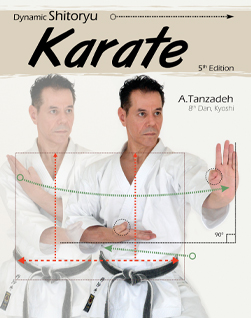Gichin Funakoshi (1868–1957) is widely regarded as the father of modern karate as well as father of Japanese karate. Born in Shuri, Okinawa, Funakoshi was raised during a time when martial arts training was still secretive and practiced privately. He began studying Tōde (Okinawan hand) under two of the greatest masters of the time: Ankō Asato and Ankō Itosu. These early teachings instilled in him the importance of both physical technique and philosophical depth. Funakoshi’s training emphasized kata (formal forms), mental discipline, and personal development — ideals that would become central to his later teachings.
In 1922, Funakoshi traveled to Tokyo to demonstrate Okinawan karate at the First National Athletic Exhibition, hosted by Japan’s Ministry of Education. The demonstration was well received, and Funakoshi was invited to stay and continue teaching. Recognizing the potential for karate to grow beyond Okinawa, he made the pivotal decision to remain in Japan, leaving behind his homeland to share the art more broadly. There, he systematized and adapted karate to align more closely with Japanese martial and educational philosophies. He eventually founded the Shotokan style — named after his pen name “Shoto” — which means “house of Shoto.”
Funakoshi was not only a teacher but a philosopher. He strongly believed that karate was not merely a form of self-defense but a way of life. He often wrote about the ethical and spiritual dimensions of training, famously stating: “Karate ni sente nashi” — “There is no first attack in karate.” This reflected his belief that karate should be practiced with humility, patience, and self-restraint. His twenty guiding principles of karate (the niju kun) remain core teachings in traditional dojos around the world.
Among Funakoshi’s close colleagues was Kenwa Mabuni, the founder of Shitō-ryū karate. The two masters shared a strong friendship and mutual respect. Funakoshi admired Mabuni’s encyclopedic knowledge of kata and his scholarly approach to preserving and categorizing karate traditions. Mabuni, in turn, deeply respected Funakoshi’s role in spreading karate to mainland Japan and in refining its philosophical message. Their collaboration helped promote unity among karate’s many schools, even as each master maintained the uniqueness of his style.
Gichin Funakoshi passed away in 1957 at the age of 88, leaving behind a legacy that transcended style and nationality. His efforts transformed karate from a regional Okinawan practice into a respected international martial art. Through his teachings, writings, and students, Funakoshi ensured that karate would not only survive but flourish. Today, his influence is felt in dojos across the world, and his name remains synonymous with the discipline, humility, and spirit of true karate-do.
Disclaimer.
This portrait was generated using AI technology, based on historic photographs and sketches.
Created for visual and artistic purposes only.






